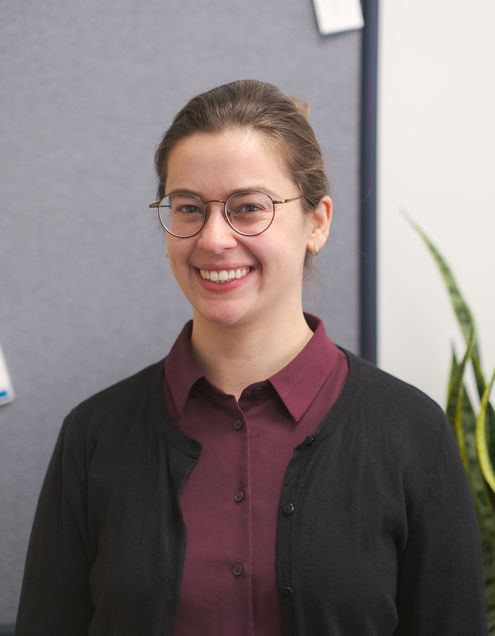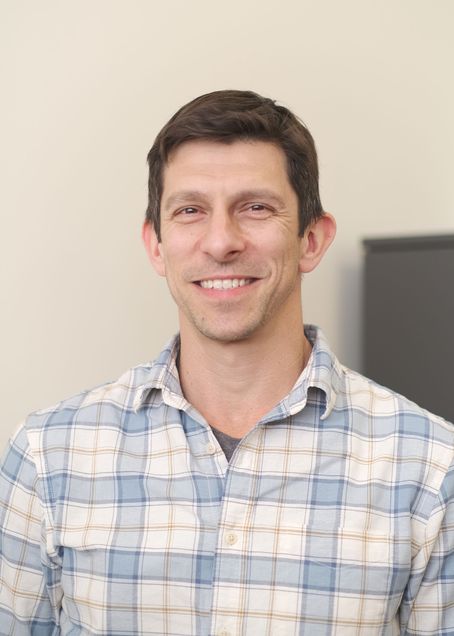BU Mechanical Engineering Welcomes New Faculty Members
The Mechanical Engineering Department at Boston University is thrilled to announce the addition of two new Assistant Professors to our esteemed faculty. We are committed to fostering a dynamic intellectual community by welcoming faculty who are innovators and experts in their field. Embracing diversity in perspectives and collaboration are our biggest values, and we are excited to welcome individuals who embody these principles.
Meet Professor Abigail (Abby) Plummer.

Professor Plummer grew up in New England and attended Brown University for her undergraduate studies. From there, she completed her PhD in physics at Harvard University and was advised by David R. Nelson. Prior to joining BU, Professor Plummer was a postdoctoral fellow at the Princeton Center for Complex Materials where she worked with Andrej Košmrlj, Sujit S. Datta, and P.-T. Brun.
Plummer is interested in better understanding how systems deform and expand in complex environments. Recently, she studied how polymer networks called hydrogels swell around obstacles and how thin sheets with defects buckle and fluctuate in noisy environments. She builds simple models to understand why we observe interesting behavior, and combines theory, simulation, and experiment whenever possible.
Click here to read more
Why did you choose BU – what made this institution/role stand out?
I have been really impressed by how BU is structurally set up to support collaboration across disciplines. Making connections across fields and working on a broad variety of topics is central to the kind of research I do, and BU clearly encourages this type of work. Another aspect that is special about Mechanical Engineering here is how supportive and kind everyone is in the department. I officially arrived in January, and I have already lost count of the number of people who have stopped by to see how I am doing and offer me advice.
What are you looking forward to?
I am excited to work with the great graduate and undergraduate students here and collaborate with my new colleagues! The department is a terrific place to do research and I am excited that I get to be a part of it. I also am looking forward to getting to know BU as a whole and explore the campus!
What do you love most about Boston?
My favorite thing about Boston is how walkable it is—you can see so much of the city by foot. My favorite places to take visitors are the Mapparium or the Boston Harbor Islands, depending on the season.
Meet Professor Valeri Frumkin.

Professor Valeri Frumkin received his undergraduate in physics, and his master’s and PhD in applied mathematics at Technion – Israel Institute of Technology, doing theoretical work on nonlinear dynamics of thin liquid films. After completing his PhD, he joined a fluid mechanics lab at the Mechanical Engineering Department in Technion, where he fell in love with doing experiments and engineering. He then continued to a three-year postdoc at MIT, where he did theoretical and experimental work on hydrodynamic quantum analogs.
Frumkin’s research currently focuses on using interfacial phenomena to control and shape liquids, as well as studying hydrodynamic systems that mimic various aspects of quantum mechanics. One of his main goals is to create a new scalable and sustainable approach to advanced fabrication and manufacturing, by shaping curable liquids such as polymers into complex structures. During the past few years, he was using fluidic shaping to create high quality optical components (e.g., lenses) without requiring any polishing or other types of post-processing techniques. This has been his biggest project to date, and it has evolved into an ongoing collaboration with NASA to create a giant liquid mirror telescope in space. Frumkin’s work also focuses on hydrodynamic quantum analogs—a field that studies fluidic systems that behave in ways analogous to some quantum mechanical ones. Such systems are helpful in delineating the line that separates the quantum from the classical, thus introducing new perspectives on quantum dynamics.
Click here to read more
What made you want to go into mechanical engineering (MechE)?
I started as a theoretician, but during my time as a postdoctoral fellow at Technion and MIT, I fell in love with experimental work. I decided to go into mechanical engineering specifically because it is very broad and connects other areas of engineering. As a MechE researcher, you have a little bit of everything—physics, biology, chemistry, material science – it can all fall under mechanical engineering. People like saying that you can do curiosity driven research; I think this really applies to MechE. You are not in any way constrained by the field. There are so many beautiful projects you can find in this department. It is the most diverse department, scientifically speaking.
What are you looking forward to?
I am looking forward to getting my lab set up and getting my first students. I love working with students. Students are essentially what drives your research. As a PI, you have to manage research and write papers and get grants, but the actual work is done by students. I fell in love with experimental work because it allows you to play around with ideas and sometimes discover something completely new. Very often these discoveries are made by students. The best thing is to have students pursuing their own ideas; when they have their own ideas, it gives them a sense of fulfillment and it prepares them to pursue their own research. Right now, I have some ideas of what I want my research to look like, but I hope in a year or two most of the ideas in my lab will be my student’s ideas.
What made you want to come to BU?
There are many reasons.
When I visited BU, I found the environment and atmosphere to be the most collegial place that I visited. I loved all the different types of projects everyone is working on here and I saw a lot of potential for collaboration. BU values and emphasizes collaboration which was a big factor for me. At most universities they say “collaboration” and “interdisciplinary” but when it comes time to enter as a new professor, you are expected to do work on your own and work as an independent researcher. I love doing a lot of different types of projects and branching out, so that is why I really value collaborations.
I also love Boston! I knew that if I came back to the U.S. it would have to be Boston.
View all posts

